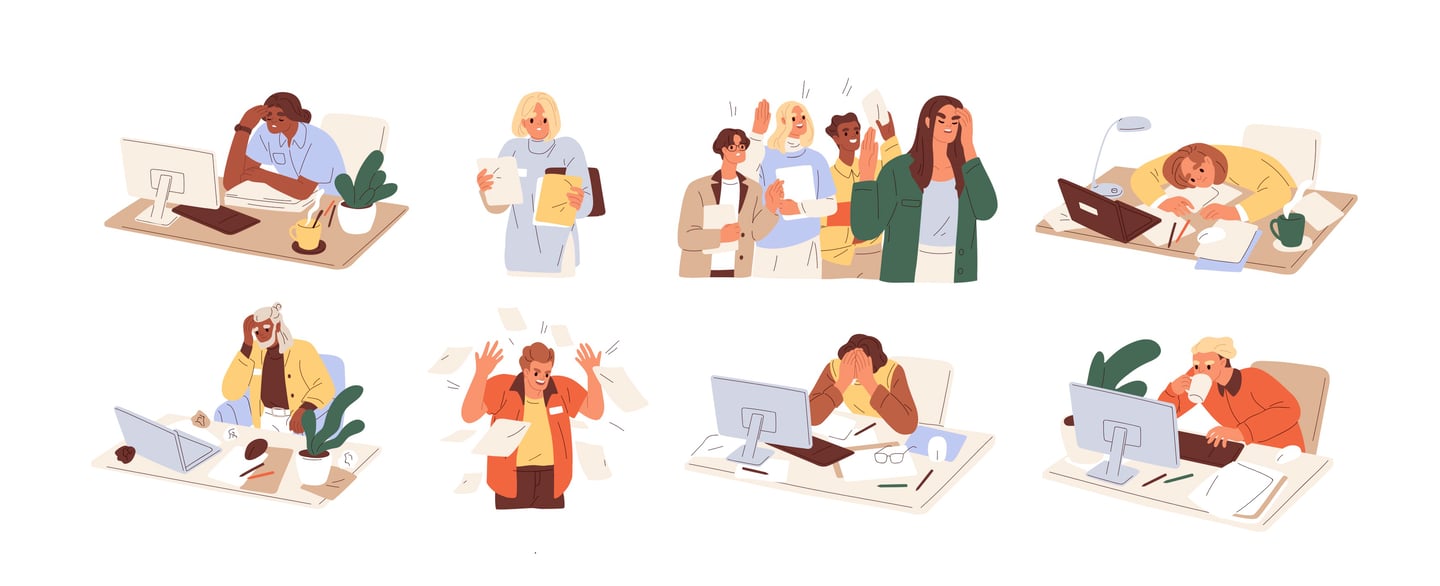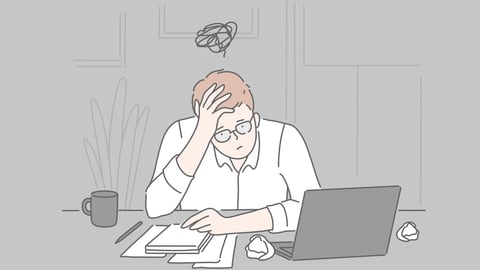Unilever, Summerhill Market execs on managing burnout
After nearly two years of living and working during a pandemic, many Canadians have been enduring extraordinary circumstances leading to increased cases of exhaustion and burnout.
Canadian Grocer recently published an article focused this issue and decided to reach out to senior executives in the grocery industry (here's part one featuring leaders from Walmart, Sobeys and PepsiCo Canada) to learn more about what steps they are taking, both personally and on behalf of their workforce, to avoid burnout. (Responses have been edited for length and clarity.)
Have you personally at any point during the pandemic felt burned out? Can you share one or two specific actions taken to ensure you’re staying mentally and emotionally well?
Naniss Gadel-Rab, vice-president, customer development at Unilever Canada: The two actions that have helped me to weather the pandemic have been working out and doing a daily meditation. I committed to carve out some “me time” in my calendar every day knowing that if I am calmer and more focused, I am better able to help my team.
Brad McMullen, president and co-owner, Summerhill Market: The nature of our business requires leadership to be able to deal with adversity on an ongoing basis. I don’t think I have ever felt close to burnout, but that is likely due to years of experience learning that both my physical and mental health is critical to our company’s success. Without it, I would simply not be capable of handling what our industry throws at us on a daily basis. My father taught me in my early years to take care of myself so I can take of our people and the business. It’s harder than it looks! Our instincts as leaders are to run into the burning building, but if I find myself being overwhelmed or stressed I quickly stop and take measures to either find support or, I will lower the expectations and learn to be satisfied that we are doing the best we can.
Have you spoken directly to your staff about the increased possibility of feeling burned out or exhausted because of the extra pressures arising from the pandemic? What was the message to them?
Gadel-Rab: It has been critical for me, and all the leaders at Unilever Canada, to have open and honest conversations with our teams throughout the pandemic. We have done this by increasing individual and small-team communication, and we have increased the frequency of company-wide town halls. Our key message is that our colleagues’ safety and well-being is our top priority. Crucially, we need our employees to feel that they are working in an environment that provides them with a safe space to raise concerns about their well-being and the permission to take the time necessary to do what they need to do to care for their physical and emotional health. We work to ensure no one feels isolated, and continue to explore fun and innovative ways to ensure our employees feel supported and connected to their teams and colleagues.
Early in the pandemic, we launched a series of short videos called #MyCOVIDstory, in which leaders and team members shared how they were managing through the pandemic. The way each person was managing their own well-being was unique and inspirational.
In addition, for our office workers, we issued a one-page document called our “Healthy Working Commitments” that summarized key principles to help us all manage the switch to working remotely. The principles include dedicated quiet hours twice a week to enable time for “heads down” work; a commitment to no meetings at lunch or outside of core hours; and improved meeting protocols.
McMullen: Absolutely. We have our weekly management calls and it was my sole consideration for two weeks in early January. My message to them was that the mental and physical health of both themselves and their families is the only thing they should be concerned about. It was spreading a positive message that even though our stores and our staff may appear to be a mess, we were doing an incredible job. If we have a door open, some food on the shelf and perhaps someone to work the checkout – we are having a truly successful day! Fortunately, our customers have also been very positive and encouraging along the way.
Have you introduced any formal programs or policies to help staff stay healthy both mentally and emotionally while still living under pandemic conditions?
Gadel-Rab: Even prior to the pandemic, mental health and well-being has always been a top priority for us at Unilever Canada. Our employees have had access to multiple resources like the Employee Assistance Program and Lifestyle Spending Account, which provide flexibility of care for mental and physical well-being.
During the pandemic we introduced three programs designed to further help our colleagues navigate the pandemic:
- Maple, a service that provides access to doctors virtually 24/7 as a safe and effective way for employees and their families to access routine healthcare from the comfort of their own home.
- Snapclarity, a service that provides free access to mental healthcare.
- Backup Care, was launched to provide employees with free access to child and adult care during the closure of schools and community programs.
McMullen: We simply haven’t had the time or wherewithal to recap what we have endured over the past several months. Just today I had a conversation about this and some other initiatives down the road with brighter days ahead, but we are still operating in crisis mode.


